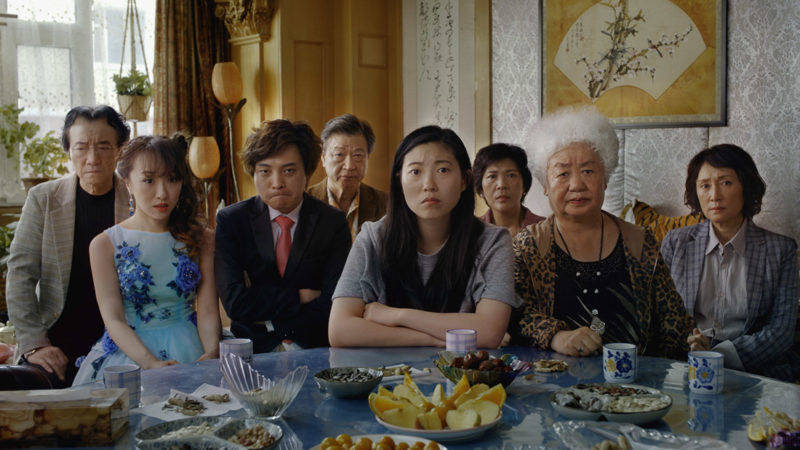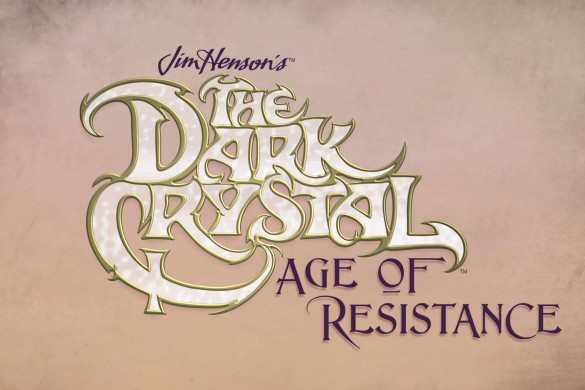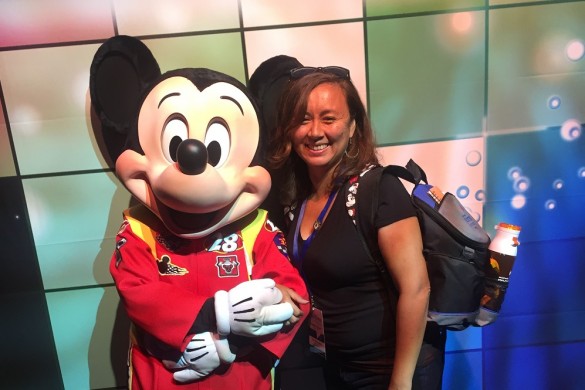Lulu Wang’s bittersweet The Farewell addresses the complications of living two different cultural identities during a time of family crisis with such empathy and understanding with a deft hand. It’s not as though we have seen family dilemmas play out in dramas like these, but Wang’s directorial effort provides a different perspective on the matter through a different cultural lens. Led by an outstanding performance by Awkwafina, The Farewell shines by bringing in humor and pathos to a difficult family situation, all the while addressing some bigger themes about cultural, family, gentrification, and identity.
The Farewell centers on Billi (Awkwafina), a Chinese-born American who is in a close relationship with her long-distance grandmother Nai Nai (Zhao Shuzhen), who lives in China. Struggling to make it out on her own, Billi is at a crossroads in her life. But when word gets out that Nai Nai has cancer and has only a few months to live, the family decides to stay true to tradition by carrying the emotional burdens and keeping the terminal illness from their beloved family member. This news confuses and angers Billi, as she finds out that the larger family is going to China to visit her for one last time under the guise that they are attending their cousin’s wedding.
Films like The Farewell hit particularly close to home because of its use of universal story and shared experiences. By doing this, Wang subverts any preconceived notions of Chinese culture. It’s certainly a quieter approach to other films with a large Asian ensemble, but it is one that gives us a better understanding of how other families confronts or struggles with extraordinarily difficult situations.
Therein lies the beauty of the film. Wang brings humor and pathos to a very real situation and directs it with a deft hand. The cheerfulness of these family get-togethers during dinners, wedding plannings, and the ceremony itself may be a facade, but the bonds and love that they for Nai Nai are very real. And a lot of that comes through Awkwafina’s Billi. The two speak to each other in a friendly yet respectful manner, often times they would tease each other about their love life. It is particularly warm to see how they interact with each other, especially with Billi playfully learning Nai Nai’s morning exercises or Nai Nai jokingly calling Billi a “stupid child.”
The film doesn’t shy away from examining the specificities of living two cultures or how emotional burdens & moral quandaries puts pressure on a family. The China that Billi returns to is a shell of its former self. She remembers nothing about what lies on the surface as gentrification has changed the landscape. At the same time, she and her family struggle with their own identity since they’ve lived in America for so long. Though it pains Billi to know that they would be keeping such a secret from Nai Nai, they still carry on the Chinese traditions that they know and hold dear.
Wang’s The Farewell is the kind of film that needs to be seen, and not just by Asian audiences or those who share these experiences, but by those who hunger to see more diverse stories on any screen. It is a bittersweet and melancholy film that is able to balance out a lot of its emotional heaviness with humor and warmth. Lovely from beginning to end, it shows that even though we have our cultural differences, we all love our family, and will do anything to protect that love, even if it means we have to lie to them.
In theaters Friday July 12, 2019 and is rated PG










